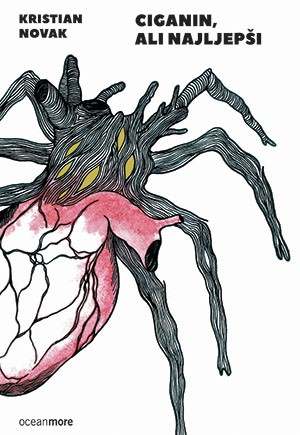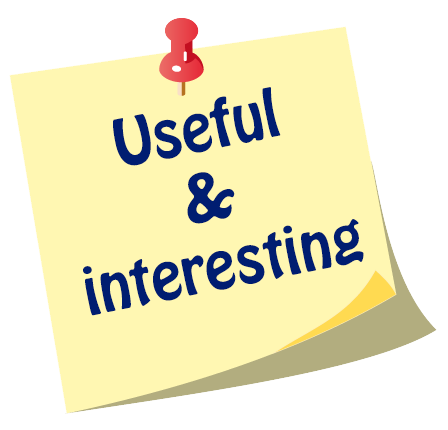
Selected stories and methodologies!
METHODOLOGY
Title of Activity
READING CIRCLES - Kristian Novak: Gypsy, but the most handsome
Description of educational activity
Duration: 60 minutes
Pupils' age: 15-18
Classroom organization: group work (5 x 4 students)
Objective: to improve student's reading literacy and ability to understand the text, the ability to reflect, critical thinking and empathy. It also aims to develop key competencies and transversal skills (critical thinking, taking initiatives, solving problems, participating in collective work ...) that enable students to critically observe and decode cultural, social, political and ideological aspects of language use; cultivating reading culture by creating a readily motivating environment that improves personal reading quality. Enhancement of communication skills, interpretation, analysis and evaluation skills.
Working materials: handouts for reading circles (roleplay reading )
A fragment from the novel "Gypsy, but the most beautiful":
Chapter 4 (4. Tripofobia, fear of holes; 1. S / "The difference between us and white children ... - ... - just a meter to the happiness.")
(4. Tripofobia, fear of holes; 1. S / "The difference between us and the white children ... - just one meter away from happiness.")
Activities:
1. Students are divided into 5 groups of 4 .
2. Each group are given handouts with special assignments.
3. Each student has his / her task in group work.
4. READING CIRCLES - reading in circles: small groups of students who, when discussing the proposed texts, take specific roles in order to prepare for their role, pupils take over the handouts with the given text, with certain roles that are focused on just one way of approaching the text. The students read the text each from a different perspective. Having read the text they gather and fulfill the tasks, again in the reading circle, students use their notes to initiate a discussion. During the process of the discussion the parts become a whole again.
The role of role-playing cards is to encourage each member of the group to read the story from a different perspective and to make notes to prepare for the debates. With this method, students learn that there are a number of different reasons for reading, as well as different views on the same text. The key feature of reading in circles: student orientation; the teacher is not a member of a group or an instructor.
Reading Circle: DISCUSSION LEADER > CONNECTOR> CULTURE COLLECTOR> WIZZARD OF WORDS (> DISCUSSION LEADER)
Motivation: Motivation handout (cartoon "I'm not racist, but ...", question; attachment: song lyrics)
5. First group: DISCUSSION LEADER
The task of the Discussion leader: to read the fragment twice and prepare at least five general questions about the story; to ask each member of your group a questions or two to initiate a discussion; to give everyone an opportunity to participate in the discussion; to invite each member of the group to present the information of the story according to his assigned role; conduct and maintain the debate by encouraging members to ask questions themselves.
6. Second group: CULTURES COLLECTOR
The task of the Collector of Cultures: to read the excerpt and look for the differences, but also the similarities between their culture and those in the story; to make notes and outline 4-5 examples in which these differences are obvious; to read these fragments on their own or ask a group member to do so; to ask members of the group to comment on the cultural events in the story. The role of the Collector of Cultures is one of the most demanding and requires better preparation, explanation on the level of cultural phenomena of a nation, like tradition, historical or political background, everyday life, etc., comparing and contrasting the cultures thus finding intercultural links.
7. Third Group: WIZARD OF WORDS
The Word Wizard’s task is : to read the excerpt and look for unknown words or phrases or words that are important to the story; to choose five words crucial for the story and use their own words to explain the group their importance for understanding the excerpt completely (especially if they have a symbolic meaning); to ask group members to read out the sentences in which these words appear; to encourage communication with questions about these words; to tell the group the final meaning of these words as well as their meaning for the complete understanding of the story.
8. Fourth Group: CONNECTOR
The task of the Connector is: to read the story twice and establish a connection between the story and the outside world; to find at least two parallels from personal experience, the experience of their friends or family; to inform the group about their notes and ask the members for comments; to ask the group for their links to real life.
Evaluation and Assessment Method:
Students independently express and fully support their attitudes and results in the course of their work. The impact of RSP reading activities: practices that support and encourage students’ choice, opinion and attitude. The idea and the choice are personal and there is no mistake, and the positive understanding and thinking affect students’ confidence and they lose previous reading resistance and gradually gain reading competence.
Connection to curriculum
Grade: 3rd year of high school
General grammar school program: The aim of the curriculum of literature and civic education is related to the reading and understanding of many literary texts on intercultural relations and cultural differences.
Pupils should independently discern, isolate, explain, demonstrate and reflect on the features of the text provided, and arguably outline their views on the influence of culture, family and society on the development of young people's personality.
Knowledge:
- Autonomously approach the text from different perspectives
- Learn to initiate a discussion and ask questions
- Develop ease and readiness of reading
- Enhance the understanding of reading comprehension
- Organize and suspend different types of information
Skills:
- Observe, counteract, distinguish, and comment on the similarities and differences in appearance in the text.
- Develop the prediction skills and ability to imagine possible situational solutions.
- Develop and enrich communication Skills.
- Construct, conclude and evaluate.
- Learn to work effectively, independently and equally in the group.
Competences:
- Establish links between the world in text and real life or personal experiences.
- Be able to visualize, combine, and intervene in the material.
- Follow the instructions and tasks to be able to evaluate the results.
- Evaluate evidence and arguments, support and justify choices.
Bibliographic reference to be used during the activity
Kristian Novak
Gypsy, but the most handsome
Published by Naklada OceanMore
ISBN 9789533320496
394 pgs
Year of issue: 2016

Digital sources
- http://www.hrvatskodrustvopisaca.hr/hr/clan/kristian-novak-265
- http://crnamatizemla.com/kristian-novak-2/tko-sam/
- http://www.oceanmore.hr/autori.php#!prettyPhoto[78]/0/
- http://www.oceanmore.hr/search.php#!prettyPhoto[120]/0/
- https://www.facebook.com/messages/t/1300629846635454
- http://radio.hrt.hr/aod/bibliovizor/196790 /
- http://www.jergovic.com/subotnja-matineja/prica-o-ljubavi-mrznji-i-izbjeglistvu-i-o-upravo-ovom-trenutku/
- https://www.tportal.hr/kultura/clanak/kristian-novak-odabrao-je-tezi-put-a-rezultat-je-izniman-roman
- http://www.matica.hr/vijenac/595%20-%20596/Ljubav%20i%20kazna
- https://www.vecernji.hr/kultura/u-romanu-ciganin-ali-najljepsi-na-pocetku-ne-bijase-zlocin-nego-ljubav-1133371
- http://crnamatizemla.com/wp-content/uploads/2016/12/Jagna-pogacnik.jpg
- http://polja.rs/blog/davor-ivankovac-prezimiti-u-europi/
- http://radio.hrt.hr/ep/signatura-0703-2017/199912/
- http://www.politikaplus.com/novost/151347/hrvatski-roman-koji-morate-procitati-kristian-novak-ciganin-ali-najljepsi
- http://www.jutarnji.hr/globus/Globus-kultura/video-ciganin-ali-najljepsi-teofil-pancic-otkriva-nam-pjesmu-kralja-nizerazrednog-ciganskog-trasha-po-kojoj-je-kristian-novak-dao-ime-svom-romanu/5617547/
- http://www.journal.hr/ilina-cenov-ciganin-ali-najljepsi/
- http://www.book-and-more.eu/OdabranaKnjiga.aspx?Id=%20205
- https://civilka.wordpress.com/2017/01/03/magija-bijesa-i-ljubavi/
- https://www.youtube.com/watch?v=hW7HLIWe6c0
Results
The expected outcomes of the lesson:
- students acquire the lifelong ability to read, interpret and evaluate the literary text with an intercultural theme;
- the ability to develop an understanding of literal and implicit meaning, relevant contexts, and deeper issues and attitudes expressed in literary works;
- a competent personal response to the subject of the literary work they have studied;
- solving different tasks from different perspectives;
- the research of broader and universal questions suggested through the literary work; an understanding of multicultural themes and phenomena beyond the Western European literary and civilizational circle;
- develope the empathy and a better understanding of themselves and the world around them.
Recommendations
Choosing a method of teaching and a suitable text affects the increase of the student's interest in reading, studying the interpretation.
Independence in work, effective co-operation, involvement in discussion and appraisal encourage interests and develop analytical and synthetic skills.
The volume of texts can be tailored to the opportunities and interests of the group as needed, according to the RSP readershipprofile.
The more active approach and the smaller text fragments offer a more interesting, dynamic way of reading and studying a literary work.
Contact
X gimnazija ''Ivan Supek''
Ul. Vjekoslava Klaića 7
10000
Zagreb
E-mail: partners@handbook4rspreaders.org










